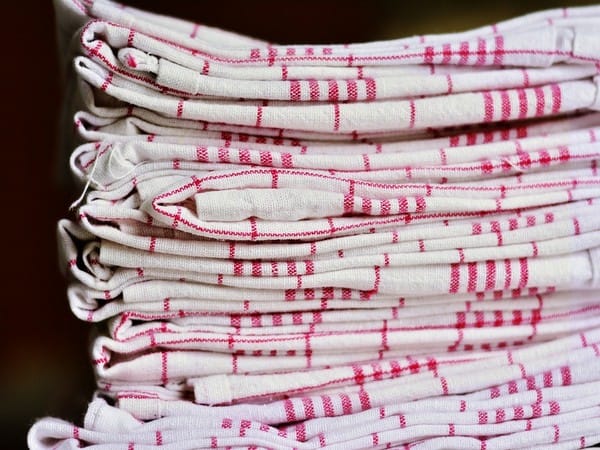Washington: Dirty kitchen towels can aid the growth of pathogens and cause food poisoning, a new research has claimed.
Researchers from the University of Mauritius have shown that factors such as family size, type of diet, multi-usage of towels, among other factors, impact the growth of pathogens on kitchen towels, potentially causing food poisoning.
“Our study demonstrates that the family composition and hygienic practices in the kitchen affected the microbial load of kitchen towels,” said Susheela D. Biranjia-Hurdoyal, the lead author on the study.”We also found that diet, type of use and moist kitchen towels could be very important in promoting the growth of potential pathogens responsible for food poisoning,” she said.
49 percent of the kitchen towels collected in the study had bacterial growth which increased in number with extended family, presence on children and increasing family size.
The towels for multipurpose usage (wiping utensils, drying hands, holding hot utensils, wiping/cleaning surfaces) had a higher bacterial count than single-use towels and humid towels showed higher bacterial count than the dry ones.
Out of the 49 samples which were positive for bacterial growth, 36.7 percent grew coliforms, 36.7 percent Enterococcus spp, and 14.3 percent S. aureus.
“In this study, we investigated the potential role of kitchen towels in cross-contamination in the kitchen and various factors affecting the microbial profile and a load of kitchen towels,” said Susheela D. Biranjia-Hurdoyal, Senior Lecturer, Department of Health Sciences, University of Mauritius, lead author on the study.
A total of 100 kitchen towels were collected after one month of use. The researchers cultured the bacteria and identified them by standard biochemical tests. They also determined the bacterial load on the towels.
S. aureus was isolated at a higher rate from families of lower socio-economic status and those with children. The risk of having coliforms (Escherichia coli) was higher from humid towels than the dried ones, from multipurpose towels than single-use ones and from families on non-vegetarian diets.
Coliform and S. aureus were detected at significantly higher prevalence from families with non-vegetarian diets. Escherichia coli is a normal flora of human intestine and it is released in large numbers in human feces. The presence of Escherichia coli indicates possible fecal contamination and lack of hygiene practices.
“The data indicated that unhygienic practices while handling non-vegetarian food could be common in the kitchen,” said Biranjia-Hurdoyal.
The presence of potential pathogens from the kitchen towels indicates that they could be responsible for cross-contamination in the kitchen and could lead to food poisoning. “Humid towels and multipurpose usage of kitchen towels should be discouraged. Bigger families with children and elderly members should be especially vigilant to hygiene in the kitchen,” she said.
The study was presented at the meeting, ASM Microbe 2018.
(ANI)

